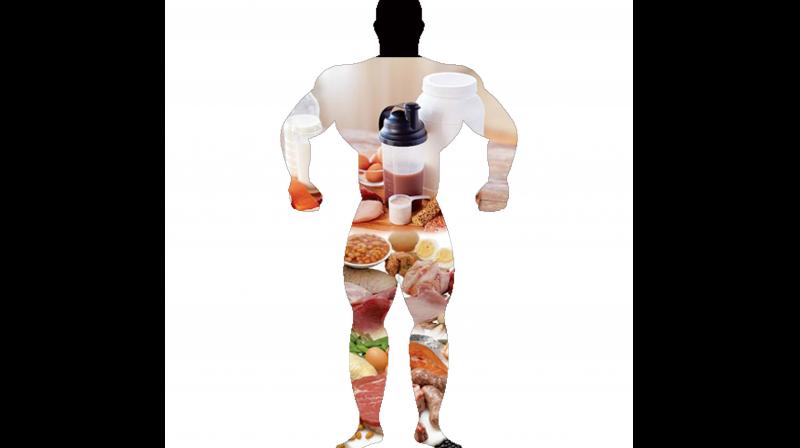Protein obsession: Deficiency of protein is rare

Dr Thomas Sanders, the Professor of Nutrition and Dietetics at King’s College, London explains the relevance of protein and dispels certain notions about it in an email interview with DisCourse:
Q: “Virtually no one in the UK is eating too little protein. It might be the case for a bed-ridden older person who is not eating enough… but in free-living individuals, protein deficiency is almost unknown”. How does your comment in New Scientist apply to the third world, where there is a sharp divide between the haves and have-nots?
A: Even in emerging economies protein deficiency is rare. A lack of food and energy is the major problem in some poorer areas, not protein deficiency. The only groups at risk are the under-fives if they are fed to much starchy food.
Q: Would you advice vegetarians/vegans to mix foods that might be limited in one essential amino acid with foods that are limited in different ones? Isn’t it easier said than done? What is a practical suggestion, especially as many people convert to vegans?
A: Vegans can easily meet their requirements for protein by consuming a mixture of cereals (rice or wheat) with pulses as my own research has demonstrated. Vegetarians who consume milk are also likely to meet protein requirements and this is very helpful for people who are consuming a lot of maize or jowar millet, which are low in tryptophan.
Q: There are indications that excess protein leads to elevated levels of urea in the blood, impacting on renal function. Also revealed is an increased risk of cardiovascular disease. Finnish researchers found that men who reported high protein intake (an average of 109 gm per day) were 33 per cent more likely to experience heart failure than those who consumed the least (a daily average of 78 gm). Does this threaten to rise to epidemic proportions?
A: Very high intakes of protein cause also loss of calcium from bones making bone fractures more likely in old age. High intakes of protein from animal sources are linked to a greater risk of developing cardiovascular disease and colorectal cancer. These are, however, only associations that may not be causal. It is also potentially harmful for people with diabetes because the elevated production of urea from protein breakdown puts an extra strain on their kidneys.
Q: There is some evidence that consuming more protein can make people feel fuller. A 2016 analysis of previous studies found that people eating high-protein meals reported feeling fuller than those consuming lower-protein meals. Is this possibly a discrete way to reduce weight and get back to shape?
A: Any diet that reduces energy intake results in weight loss. Protein-rich foods can be very satiating (eg fish, chicken breast) but some (cheese, burgers, sausages and nuts) also be accompanied by a lot of fat which makes them high in food energy. Most food energy comes from carbohydrate, so if carbohydrate intake is reduced (eg. eating smaller portions of rice) the proportion of energy from protein increases without increasing protein intakes. Eating more protein rich foods does not necessarily promote weight loss.
Q: Nutritional scientist Marion Nestle at New York University argues in her 2018 book, Unsavory Truth, that the food and drinks industry, especially those selling protein-heavy products such as meat and dairy, has distorted nutrition science by, for example, publishing only results that are useful in marketing their products. Can’t companies that cheat consumers be reined in by law? Or is it better left to awareness campaigns?
A: I can only comment on the science. In my view, most of the claims for high protein diets remain unsupported by good scientific evidence. Small amounts of animal protein food can make a sparking contribution in improving the overall nutritional quality of diet but that does not mean to say more is better. High protein diets are neither balanced nor sustainable.
(Prof Sanders’ clinical academic group endeavours to foster cross-disciplinary research. It has much experience in the design and execution of controlled dietary intervention trials. He has a long-term interest in assessing the risks/benefits associated with food and this is reflected in the work he has done on British Nutrition Foundation Task Forces... that developed the methodology for assessing risks and benefits of foods and as well as participation in expert consultations with the United Nations WHO/FAO).

